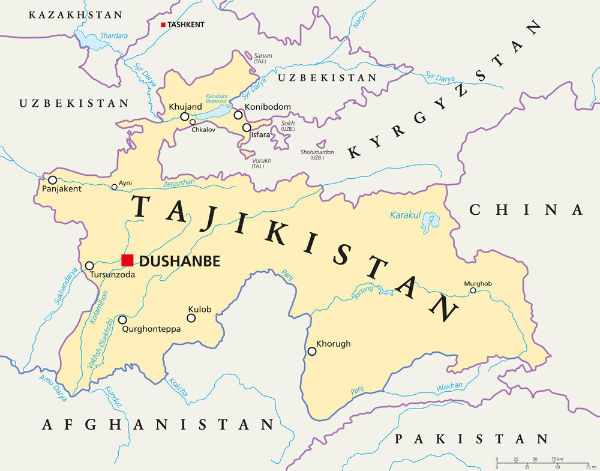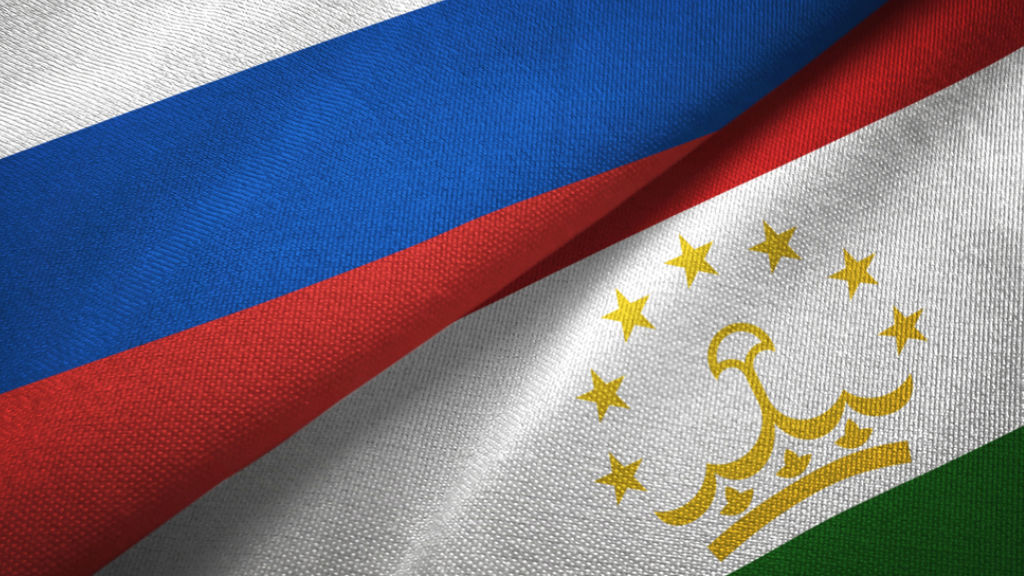Tajikistan’s President, Emomali Rahmon has met with Russian Deputy Prime Minister Marat Khusnullin, as part of the two countries Intergovernmental Economic Cooperation Commission in Dushanbe. The Tajik Ministry of Foreign Affairs stated that “The meeting addressed strengthening multi-faceted cooperation between Tajikistan and Russia. Attention was paid to expanding ties between the two countries in trade, industry, energy, finance, banking, and investment.”
Attracting Russian investments to Tajikistan for implementing joint projects, including in industrial cooperation and creating industrial parks, offering tax incentives, were part of these discussions.
Khusnullin said that “Our economic relations are demonstrating high development rates. Russia remains a key trade partner of Tajikistan. Trade grew 14% in the first eight months of 2024, reaching US$1.26 billion, with both imports and exports increasing. Interregional cooperation is on the rise. More than 70 Russian regions have already established contacts with Tajikistan in a broad range of areas.”
This implies a total 2024 bilateral trade turnover of about US$1.86 billion, and would be a record high.
In terms of culture, an agreement on building a centre for gifted children and a new building for the Russian Drama Theatre in Dushanbe is an important step in the development of Russian-Tajik relations, he said. Design assignments and general plans have been signed and a state registration certificate has been received, he said adding that construction is expected to begin this year.
The meeting’s participants discussed the details of cooperation on trade, industry, customs, agriculture, culture, education, and tourism and made plans for the further development of bilateral relations. Khusnullin and Rasulzoda signed a protocol of the intergovernmental commission’s meeting and a program of economic cooperation between the Russian and Tajik governments until 2027.

The Tajik Chamber of Commerce and Industry and the RWB company (Russ and Wildberries) signed a memorandum of cooperation, while the VisionLabs company and the Smart City company signed a memorandum of cooperation aimed at developing digitalization joint projects.
In late 2022, entrepreneurs from Russia and Tajikistan, together with the Russian Trade Mission, have chosen three highly promising investment projects into consideration: a center with electron accelerators for phytosanitary processing, fruit processing for pectin production and the creation of a shoe manufacturing facility in Tajikistan. A significant multimodal Russian logistics carrier, PEK, began its operations in Tajikistan. The company specializes in the delivery of cargoes by air and road, and has already helped identify Tajik economic sectors for Russian businesses to become involved with.
Close links also exist between Russia’s Tatarstan and Tajikistan. For instance, Tatar companies are interested in the Tajik market. Among these are Tatneft, KAMAZ, KMPO, Shipbuilding Corporation, Pozis, GMS-Group, Tatkhimfarmpreparaty amongst others.
In 2023, Tajikistan increased its exports of high-tech products to Russia by more than 50%. Tajikistan exports to Russia include communication equipment, air-cleaning equipment, computer and block equipment, transistors, electric batteries, zinc ores, fruits, and animal and vegetable oils. Russia exports agricultural products, woodworking, ferrous metals, vehicles, chemical industry, mineral fuels, and wood.
Tajikistan is highly dependent on Russia in some of the key trade products important to the operation of various industries in the country: more than 50% of Tajikistan’s needs in fuels and lubricants, wood, oils, and various food products are supplied from Russia.
The country is also an active investment destination for China’s Belt & Road Initiative, which is providing loans to finance road, and rail connectivity between China, Tajikistan and onward into Afghanistan and Uzbekistan – a key part of the revitalisation of Central Asian supply chains. For example, Afghanistan has significant deposits of lithium (used in EV batteries) and beryllium, which is lighter than aluminium and stronger than steel used in airplanes, helicopters, ships, missiles, and spacecraft. Chinese and Russian investors will be looking at jointly accessing and processing these critical minerals, amongst many others, with Tajikistan potentially a key access point and processing hub.
Further Reading
Russia Provides Tajikistan With Wind Farm Energy Investment Proposal

 Русский
Русский













